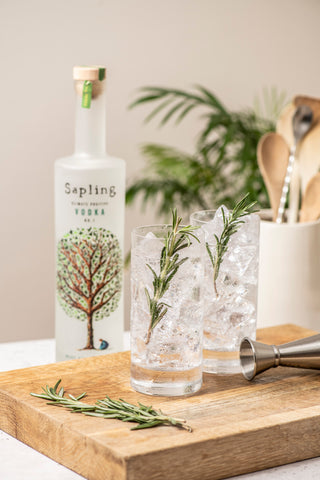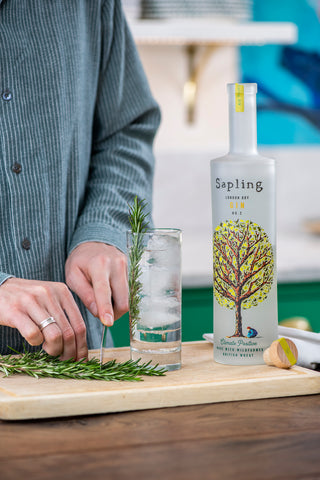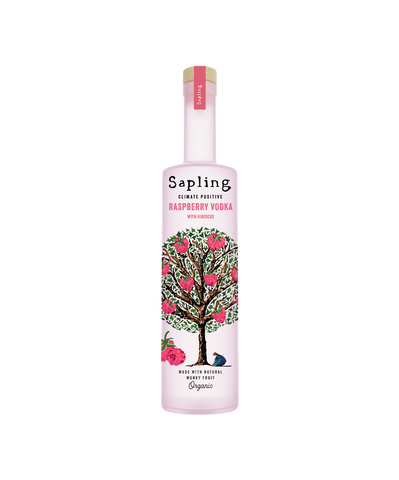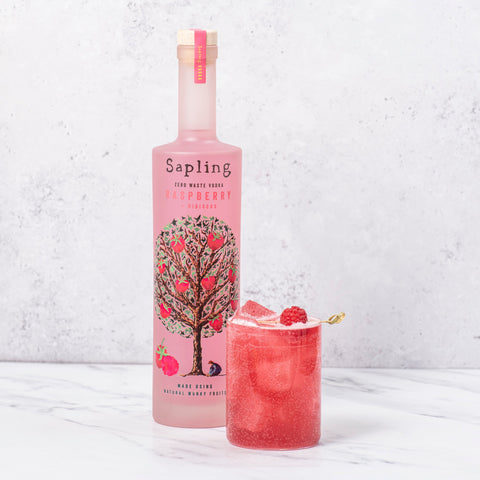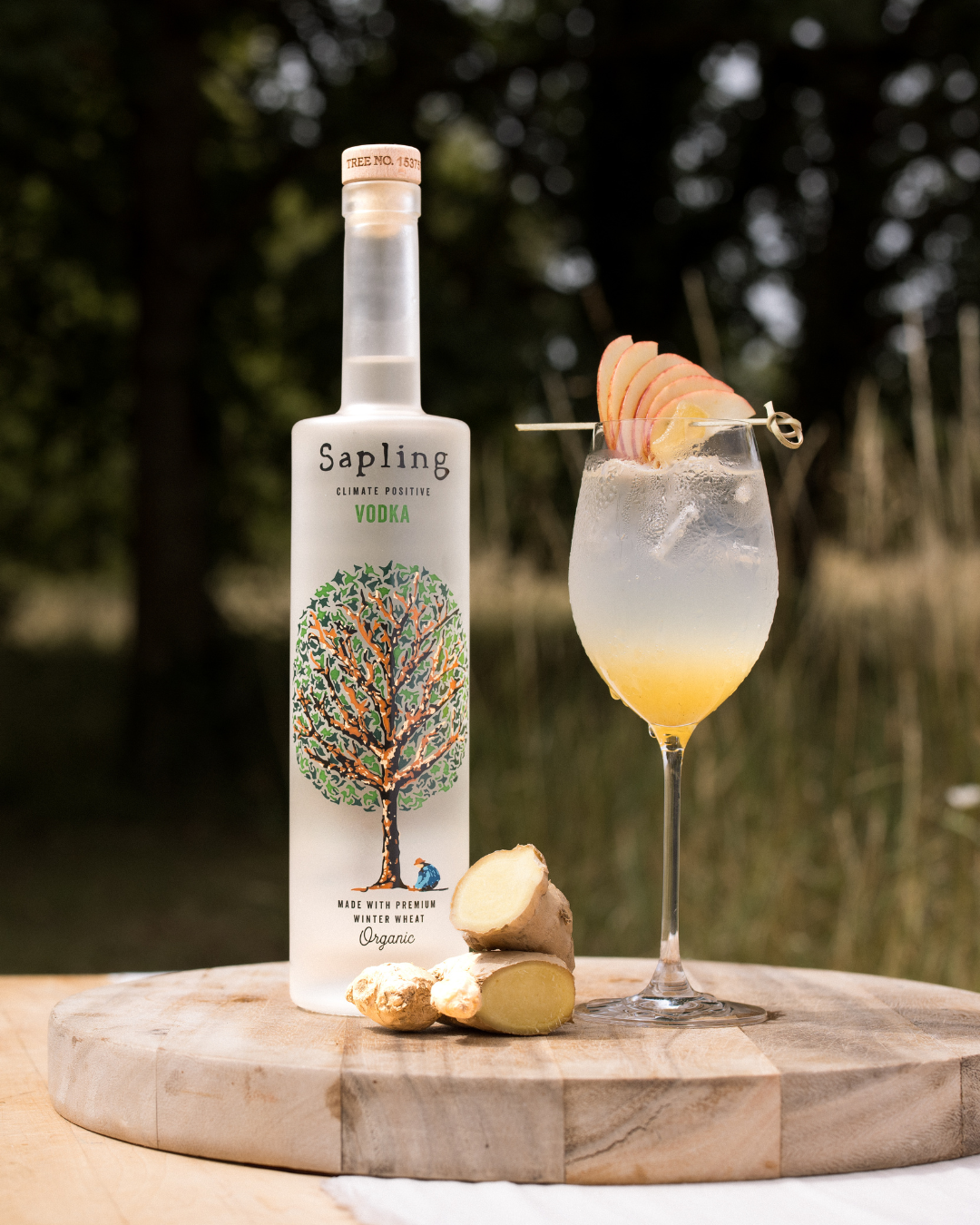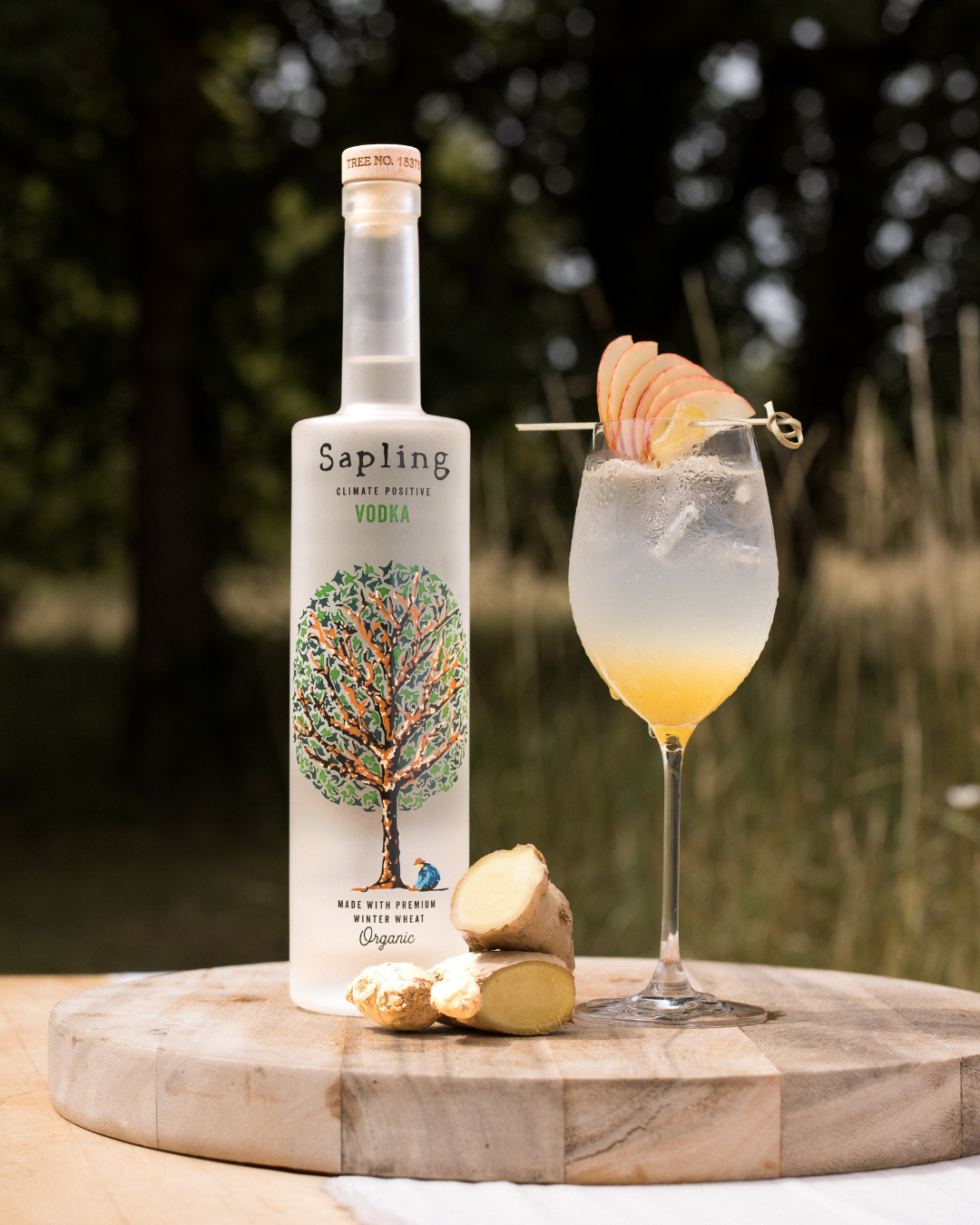
We’re a fun-loving company, but we take sustainability seriously. Whether it’s simple things like localising our supply chain so that we make our premium vodka and artisan gin as close to our customers as possible, or more complex decisions such as the type of wheat we use, everything we do relates back to sustainability in some way.
We’re leading the way in sustainable spirits
We recently closed our crowdfunding campaign, which we’re delighted to say went really well. The fact that investors have given us their backing bodes very well for Sapling Spirits. But it’s also good news for our environment, as our ambition has always been to lead the way to an eco-friendlier method of vegan vodka and gin production becoming the norm. We hope that our success and the innovations we put in place will encourage other brands to adopt more sustainable practices.
Sapling isn’t only about trees
But what will that actually mean for the planet? We’ve spoken about our tree-planting efforts, but we don’t expect other brands to follow suit by planting a tree for every bottle they sell. Also, as great as it is, reforestation is only a small part of what makes us a sustainable British vodka and gin brand. There are loads of things that we do to alleviate the environmental impact of our products.
What are the benefits of sustainably sourced spirits?
The best way to answer this question is to take a look at the way vodka is normally produced. After all, the reason we started a British made vodka company was that we saw that the production methods of most of the big players took a needless toll on the environment. So, let’s take a look at a few of the decisions we made and explain why they make a climate positive difference.
We make our vegan vodka and gin in the UK
Perhaps the first and most important decision we took was to create our artisan vodka right here in the UK. If you think about it, the fact that we used to import more than £20m worth or Russian vodka annually was pretty crazy. And that’s not even to mention the hundreds of thousands of bottles that are shipped and flown in from other countries. The seemingly obvious decision to manufacture here eliminates massive amounts of carbon emissions that result from importing vodka from overseas. When you buy a bottle of Sapling vodka or gin you’re purchasing a locally made product that has very few food miles attached to it. You’re also supporting sustainable British farming, which is hugely beneficial in its own right.
We use British grain.
Making carbon positive spirits isn’t just about lowering airmiles, though. We also choose the ingredients themselves very carefully. To make the best British vodka in a sustainable, vegan way we naturally start by choosing the best British winter wheat grain. This is better for the land, has lower carbon emissions and actually means we get more productivity than we would with an alternative. We also use regenerative grain in our vegan gin. Although that might sound odd—isn’t all grain the same? — the move to regenerative grain is actually a massive environmental step forward.
Industrial grain farming
The thing is, modern farming production is scarily dependent on artificial fertilizers. Monoculture farming (growing only one type of crop in each field) degrades the fertility of the soil, robbing it of its nutrients and destroying the delicate balance of bacteria and microorganisms. That’s why upwards of 80% of the land used in European wheat farming is actually classed as dead biological space, meaning that the only way to get a good yield from the land is to use a bewildering array of nitrogen-fixing fertilizers.
Regenerative farming
The grain we use for our artisan British vodka is farmed the old-fashioned way. Regenerative farming involves rotating the crops you grow in each field so you can nurture biodiversity and allow the soil to build up organic matter. This means that the soil can retain nutrients, sequester carbon, and capture and retain water. Without the need for tonnes of fertilizer. This is the way things used to be done before industrial methods took over. Those methods increased yield, but at a profound environmental cost. By focusing our efforts on using regenerative crops, we’re helping the industry move away from fertilizer-dependent, environmentally damaging practices.
Zero-waste cocktails and other sustainable methods
Now that we’ve dealt with a few of the major benefits of British made vodka and sustainable gin, we can explore the other advantages of sustainably sourced spirits in future blogs. Keep an eye out for more ideas that we’re bringing to the fore, including some terrific zero waste cocktails and an exploration of the way we’re using refill pouches and 5-litre bags in boxes to reduce the impact of single-use glass.
See you then!
Love
The Sapling Team
Shop our Sapling Originals
Award winning sustainable spirits, For each bottle we plant a tree, so let's get sipping.
Cocktail Recipes
Try making some delicious cocktails at home

